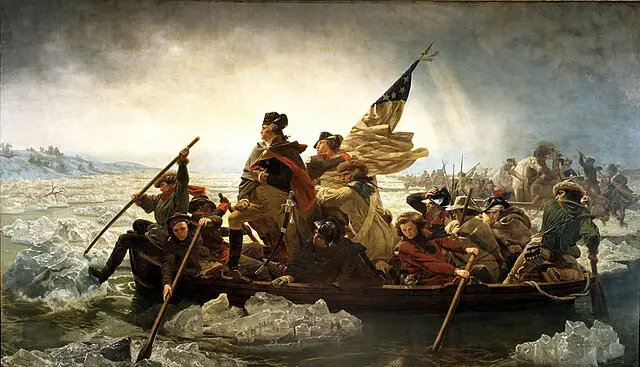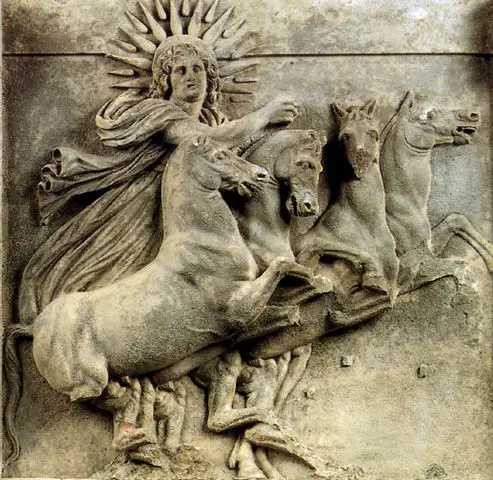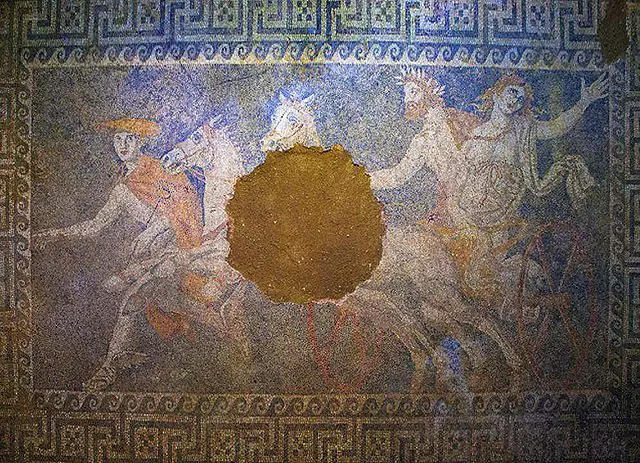| Further Reading | Why The Sparta Did Not Fight At The Battle Of Marathon |
When we think of Greek history most people imagine hoplites in bronze armor fighting in a phalanx formation against overwhelming odds. Of these famous battles the Battle of Plataea was a major turning point in Greek history.
The reason why the Battle of Plataea was a turning point in Greek history was because it marked a climax of the Greco-Persian wars. After the battle Persia would never again attempt to invade Greece. Further, the Battle of Plataea demonstrated the superiority of the Greek phalanx infantry against overwhelming odds.
Unlike the Battle of Marathon or the Battle of Thermopylae the Battle of Plataea goes largely unnoticed. This is because the battle itself was the result of a mistake on both the Persian and Greek side, so it makes less of a sensational story. However, the Battle of Plataea is by far one of the most important battles of classical Greece.
Here at The History Ace I strive to publish the best history articles on the internet. If at the end you enjoyed this article then consider subscribing to the free newsletter and sharing around the web.
Without further ado, here is an article on why the Battle of Plataea was a turning point in Greek history.
The Battle Of Plataea Was The Climax Of The Greco-Persian Wars
One of the main reasons why the Battle of Plataea was a turning point in Greek history was because it marked a climax in the nearly 5 decade long war between the Greek city-states and the persians.
In 499 BC Athens would aid the Ionian Greeks on the coast of Turkey in revolting against the Persian/Achaemenid Emperor Darius the Great. In order to secure his borders Darius would start a series of proxy wars which eventually erupted into full-scale war between Athens and Persia.
The problem however was that Athens was allied with several other smaller city-states in Greece. This effectively dragged the whole of classical Greece into conflict against Darius.
At the Battle of Marathon Athens and several other Greek city-states successfully defeated the Persian expeditionary force. This was the first major engagement of Greek hoplites in a phalanx formation against the Persian light infantry tactics.
The Greco-Persian wars would continue for nearly 50 years. However, in an effort to provide a crushing defeat for the Greeks Darius’s son Xerxes would organize a massive Persian army to march on Athens.
After defeating the Spartans at the Battle of Thermopylae Xerxes would torch Athens. However, the Greeks would unite and send the largest unified Greek force ever organized. Xerxes’s entire army was halted at Thermopylae by a small group of Spartan soldiers, at the Battle of Plataea there was over 100,000 Greek soldiers with 5,000 of them being Spartans.
The Persian army numbered in the range of 120,000-400,000 depending upon the source. This was the largest battle fought up to that point in Greek history.
After the Battle of Plataea Persia would never again attempt to invade the Greek city-states. This battle was a turning point because it allowed the Greek city-states to begin to develop their own power independent of outside influences for nearly 200 years.
As such the Battle of Plataea was a turning point in Greek history.
The Battle Of Plataea Demonstrate The Superiority Of The Greek Phalanx Formation
Another reason why the Battle of Plataea is a turning point in Greek history was because it marked the superiority of the Greek infantry phalanx against lightly armored infantry.
The average Greek hoplite soldier would be extremely armored when compared to the lightly armored Persian troops of Xerxes. The Persian military of the 5th century BC was used to relying upon mounted horse archers and light infantry to flank and overwhelm the enemy.
The problem was that Greece was a mountainous environment with deep valleys. This was not the location to use the traditional Persian cavalry. Further, it was the Greek’s home territory. Using a lighting style of warfare to encircle and confuse the Greeks with cavalry was not going to work; both because of the terrain and also because of the nature of hoplite defenders.
As such the Persian military would have to rely upon using its overwhelming force and light infantry to out maneuver the Greeks and encircle them. This was the preferred tactic of the Persians in the Greco-Persian wars.
The Battle of Thermopylae demonstrated the effectiveness of using a faster moving light infantry to encircle Greek hoplites. As such the Persian command would attempt to use the same tactic.
However, at the Battle of Plataea the Greek force was massive. On top of this the topography of the valley of Plataea presented a problem for the Persians. Mountains were on two of the four sides of the field and a river was on the 3rd.
The Persian light infantry was completely destroyed at the Battle of Plataea. They could not flank around the Greeks and had to fight them head on.
As such one of the main reasons why the Battle of Plataea is a turning point in Greek history is because it demonstrated the superiority of the phalanx formation against lightly armored troops. The phalanx would continue to dominate the Greek battlefield for another 100 years before Sparta was defeated by Thebes at the Battle of Luctra.
Conclusion
There you have it; an entire article dedicated to the reasons why the Battle of Plataea was a turning point in Greek history.
The Greco-Persian wars demonstrated a significantly smaller military force could stand against overwhelming odds if given the right leadership and equipment. Any potential students of history will find substantial material to pursue graduate studies in the military maneuvers of the ancient Greeks.
Here at The History Ace I strive to publish the best history articles on the internet. If you enjoyed this article then consider subscribing to the free newsletter and sharing around the web.
Further, you can check out some of the other articles below.
-
How The American Revolution Changed The World

Here is how the American Revolution changed the world. Many people are not aware of just how important this event actually was.
-
Why The Roman People Loved Chariot Racing

Why did the Roman people love chariot racing? Well it all comes down to these 3 reasons.
-
The Design and Color of Roman Chariots

What was the design and color of Roman Chariots? Were they faster or slower then normal chariots? Well here is everything!
Sincerely,
Nick